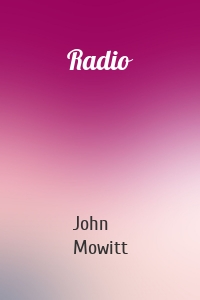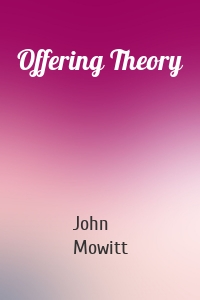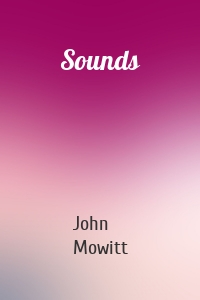John Mowitt
3 кн.
Radio
In a wide-ranging, cross-cultural, and transhistorical assessment, John Mowitt examines radio’s central place in the history of twentieth-century critical theory. A communication apparatus that was a founding technology of twentieth-century mass culture, radio drew the attention of theoretical and philosophical writers such as Jean-Paul Sartre, Walter Benjamin, Jacques Lacan, and Frantz Fanon, who used it as a means to disseminate their ideas. For others, such as Martin Heidegger, Theodor...
| Автор | John Mowitt |
Offering Theory
A reading of Theory that in tracing when and where Theory arises in the event of reading proposes how Theory might best be handled in the context of higher education today. Arguing against those who propose to avoid Theory in the name of its putative obsolescence, this text sets out to challenge two aspects of this avoidance. On the one hand, Theory has been set aside in the name of identity politics, that is, the proposition that its intellectual pertinence has been overshadowed by a sense of...
| Автор | John Mowitt |
Sounds
This is not a book <I>about </I>sound. It is a study <I>of</I> sounds that aims to write the resonance and response they call for. John Mowitt seeks to critique existing models in the expanding field of sound studies and draw attention to sound as an object of study that solicits a humanistic approach encompassing many types of sounds, not just readily classified examples such as speech, music, industrial sounds, or codified signals. Mowitt is particularly interested in...
| Автор | John Mowitt |




